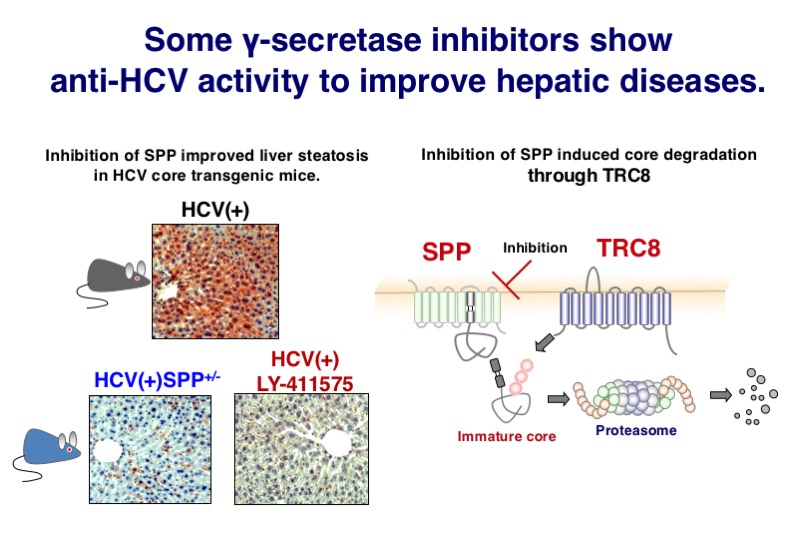Nat Commun 7:11379 2016/05/04
Hepatitis C virus (HCV) is a major causative agent of chronic liver diseases including steatosis, cirrhosis and hepatocellular carcinoma (HCC). Transgenic mice expressing HCV core protein (CoreTg) exhibit insulin-resistance, steatosis and finally develop HCC, suggesting that core protein plays crucial roles in pathogenesis of HCV. Here we show that SPP inhibition reduces production of infectious HCV particles and pathogenesis. The immature core protein produced in SPP-knockout cells or by the treatment with an SPP inhibitor is quickly degraded by the ubiquitin-proteasome pathway. TRC8, an E3 ubiquitin ligase, is suggested to be involved in the degradation of immature HCV core protein. Oral administration of the SPP inhibitor into CoreTg or one allele deletion of SPP gene ameliorates insulin-resistance and liver steatosis. Our finding suggests that SPP is a novel target for anti-HCV therapy.
Links
- Home
- Achievement
- Research Activities
- Nat Commun 7:11379 2016/05/04








